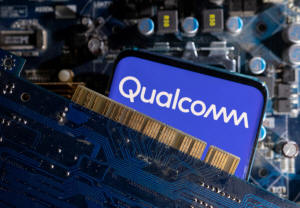|
The
European Commission slapped the fine on Qualcomm in 2019 for
selling its chipsets below cost between 2009 and 2011, in a
practice known as predatory pricing, to stymie British phone
software maker Icera, now part of Nvidia Corp.
The company last year secured a major win as it convinced the
General Court to scrap a 997 million euro EU antitrust fine in
another case related to payments made to Apple to use only its
chips in all its iPhones and iPads in order to block out rivals
such as Intel Corp.
Qualcomm lawyer Miguel Rato criticised the Commission's
investigations against the company on the first day of the
three-day hearing.
"This is the second instalment of the Commission's campaign
against Qualcomm. The first was the exclusivity decision
squashed by the Court," he told the General Court.
He said the 3G baseband chipsets singled out in the case
accounted for just 0.7% of the Universal Mobile
Telecommunications System (UMTS) market and thus it was not
possible for Qualcomm to shut out rivals from the chipset
market.
"What price should Qualcomm have charged for each chipset and
each quarter to allow it to pass the price cost test?" Rato
said.
Qualcomm's actions showed it was determined to eliminate a rival
before it could pose a competitive threat, Commission lawyer
Carlos Urraca Caviedes told the court.
"Icera was about to gain a solid foothold in the market segment
which was strategically important for future growth. Qualcomm
feared that if it did not take action, Icera would grow to
expand and become a formidable rival," he said.
The court will rule in the coming months. The case is T-671/19
Qualcomm v Commission.
($1 = 0.9366 euros)
(Reporting by Foo Yun Chee; Editing by Jacqueline Wong)
[© 2023 Thomson Reuters. All rights
reserved.]
This material may not be published,
broadcast, rewritten or redistributed.
Thompson Reuters is solely responsible for this content.

|
|





